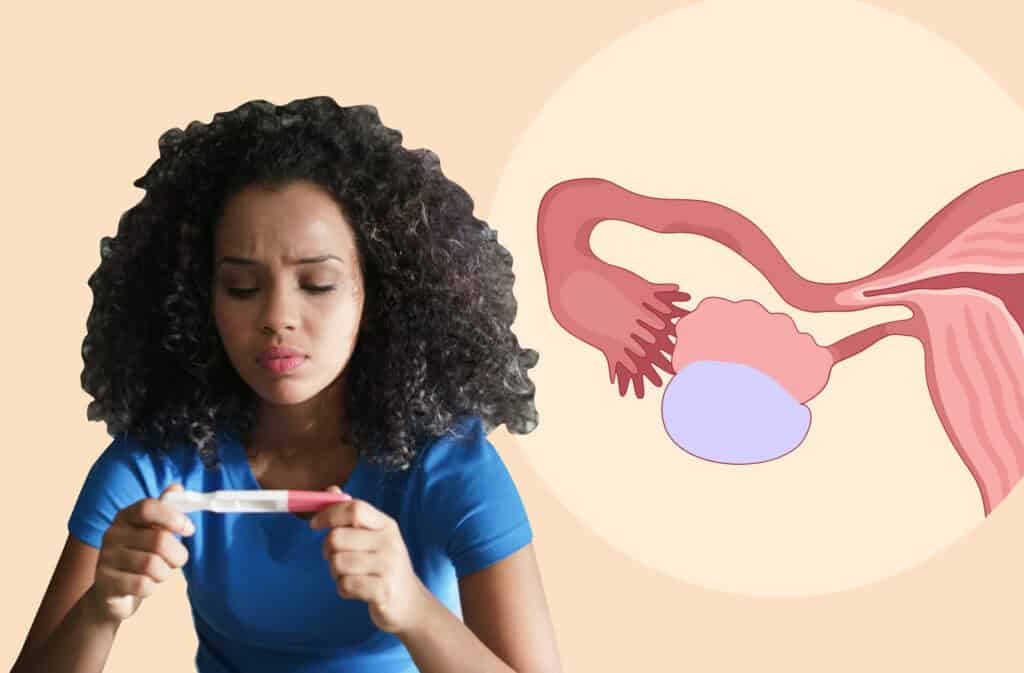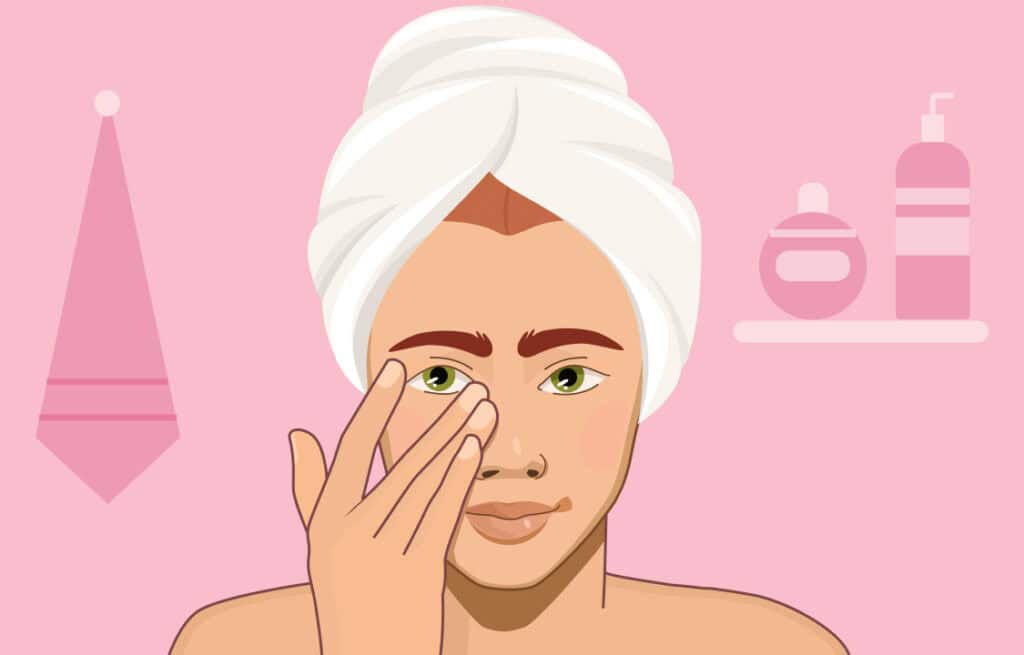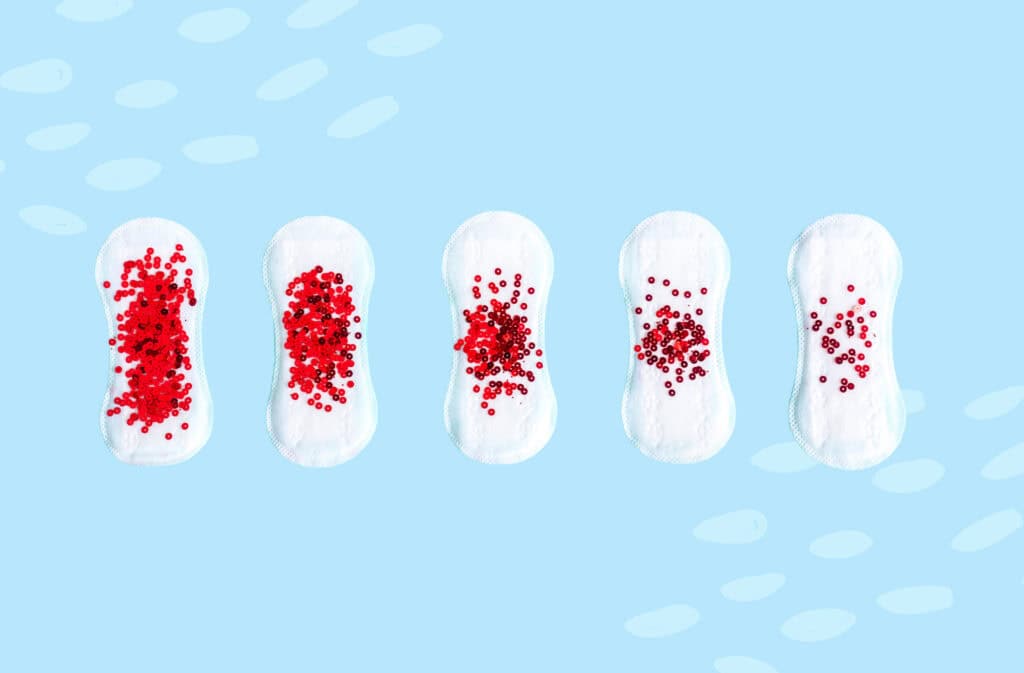Femia > Health Library > Getting Pregnant > Planning pregnancy > Can ovarian cyst cause infertility? Everything you need to know
Can ovarian cyst cause infertility? Everything you need to know

- Updated Feb 11, 2025
- Published
CRAFTED BY HUMAN
Crafted by human At Femia, we provide accurate and up-to-date information at every stage of your journey, from trying to conceive, pregnancy and postnatal support. All content is created by a real person based on in-depth research and own professional experience. Femia ensures that you will receive expert advice, strict accuracy and a personalized approach from our authors/medical experts. Learn more about our editorial policy.
FACT CHECKED
Fact checked At Femia Health, we maintain the highest standards of editorial excellence in delivering content focused on helping you conceive, guiding you through pregnancy, and supporting you postpartum. Explore our content review principles to learn how we ensure the accuracy and quality of our health and lifestyle tips for every stage of your journey.
Ovarian cysts are common, and most are harmless and do not affect fertility. Functional cysts usually resolve on their own, while pathological ones, like endometriomas or those associated with PCOS, may interfere with ovulation and damage ovarian tissue. Early diagnosis, a proactive management plan, and a blend of lifestyle adjustments and medical treatments can help improve fertility outcomes.
Ovarian cysts are fluid-filled sacs inside or on the ovaries. They are common, and many women develop ovarian cysts at some point in their life. The good news is that most of them are harmless and come with no symptoms, so they are often undetected and disappear on their own over time.
In this article, we will go through every detail about ovarian cysts, the different types, how they affect health and treatment options, and answer the most common questions on that topic: can ovarian cyst cause infertility?
Femia helps you understand your symptoms and when to take action
What are ovarian cysts?
Ovarian cysts are sacs found on or inside the ovaries that are filled with fluid or a semi-solid substance. Ovarian cysts often appear as a part of the normal menstrual cycle and can occur at almost any age. Most are safe and disappear on their own, but others may require closer attention. Some cysts produce hormones, others don’t.
Ovarian cysts have two categories: functional and pathological. Functional ones (follicular or corpus luteum cysts) are more common and occur as a normal part of the cycle. Functional cysts are almost always safe, may come with no symptoms or discomfort, and usually don’t impact fertility.
In contrast, pathological ovarian cysts form as a result of abnormal cell growth. These are less common and can be endometriomas, dermoid cysts, etc. These cysts are often a cause for concern and require treatment or removal so they don’t affect fertility and general health.
👉Find out more: PCOS vs endometriosis: Symptoms, differences, and how they affect your health
Do ovarian cysts affect fertility?
A cyst’s impact on fertility depends on many factors, including its type, size, one’s age, and overall gynecological health.
While most cysts are safe and do not have any effect on a woman’s ability to have a child, certain types can interfere with ovulation, making it harder to conceive. That is because irregular or missed ovulation is one of the most common reasons women have trouble getting pregnant.
Functional cysts (which are the most common type), cystadenomas, and dermoid cysts (these contain solid tissue) do not impact fertility unless they grow very large. Large cysts, along with endometriomas (caused by endometriosis) and PCOS cysts, can damage ovarian tissue. We will talk about such cysts a bit later.
Can I get pregnant with an ovarian cyst?
If you wonder, “can ovarian cysts cause infertility?”, the shower answer is yes, but it is rare. As we mentioned, ovarian cysts are often safe and do not affect fertility. However, large or pathological ones can cause infertility in several ways.
The chances of getting pregnant with ovarian cysts depend on factors like its size and location, whether it is causing hormonal imbalances and any underlying health conditions.
First of all, a large cyst can block the ovary from releasing an egg, which is an essential process for pregnancy. Secondly, some cysts can cause hormonal imbalances, affecting ovulation. Other ovarian cysts may cause discomfort and pain, so intercourse could become difficult or impossible.
Types of ovarian cysts and their impact on fertility
Now, let’s take a closer look at all the types of ovarian cysts you want to know and differentiate:
- Functional cysts: these are the most common type and form part of the normal menstrual cycle. These include follicular cysts, occurring when a follicle does not release an egg, and corpus luteum cysts, developing once the egg is released. Functional cysts are usually harmless and resolve on their own within a few menstrual cycles. However, in rare cases, large functional cysts may rupture or cause ovarian torsion, potentially damaging ovarian tissue and impacting fertility.
- Endometriomas: these are also known as “chocolate cysts” and are a type of ovarian cyst associated with endometriosis. Filled with old blood and tissue, such cysts may irritate the surrounding ovarian tissue. Endometriomas are more dangerous, as they may reduce ovarian reserve by damaging the tissue and causing chronic inflammation, which can impair implantation and decrease IVF success rates. Early diagnosis and management of endometriosis are essential for preserving fertility.
- Dermoid cysts: these are non-cancerous growths arising from embryonic cells that may contain various tissues—including fat, skin, or even hair.. These cysts also do not interfere with ovulation or hormonal function, meaning they rarely affect fertility. But, if they grow large, they may cause discomfort, ovarian torsion, and pressure on surrounding structures, potentially complicating ovulation. Surgery is often recommended for large cysts.
- Polycystic Ovary Syndrome (PCOS): PCOS is a hormonal disorder where many small cysts develop on the ovaries, causing irregular ovulation and elevated androgen levels. PCOS involves systemic imbalances such as insulin resistance, elevated androgen levels, and metabolic syndrome, which disrupt ovulation and may lead to infertility. Additionally, PCOS is associated with metabolic risks, including insulin resistance, type 2 diabetes, and cardiovascular diseases, which can complicate pregnancy and fertility treatments. Treatment typically involves medication, lifestyle changes, and, in some cases, assisted reproductive technologies.
How to get pregnant with ovarian cysts
1. Work closely with a healthcare provider
It’s essential to work with a healthcare provider to monitor the size, type, and behavior of your ovarian cysts. In most cases, doctors will only suggest checking the cyst within a month or two. Regular ultrasounds and blood tests can help track cyst development and learn if the cyst can prevent pregnancy.
In case of any high-risk cysts or those caused by PCOS or endometriosis, a doctor will develop a tailored treatment plan to ensure the best chances of preserving or restoring fertility. The key to healthy fertility is early and proactive management.
2. Explore fertility treatments
For those struggling to conceive due to ovarian cysts, healthcare providers may offer fertility treatments. These may include ovulation induction with methods like:
- Clomid;
- Intrauterine insemination (IUI); or
- In vitro fertilization (IVF) for more severe cases.
It’s important to consult a reproductive endocrinologist to help determine the most suitable approach. Combining these treatments with regular checkups ensures a safe and efficient approach to future pregnancy.
3. Maintain a healthy lifestyle
Lifestyle changes to support hormonal balance and improve fertility might be an option when combined with a doctor’s guidance. It may involve a balanced diet, regular exercise, and adequate sleep to help regulate hormone levels and reduce cyst-related symptoms.
It’s also recommended that alcohol, caffeine, and processed foods be limited to support reproductive health. You can try also managing stress with meditation, yoga practices, or therapy to promote hormonal stability.
Femia helps you understand your symptoms and when to take action
How to get pregnant with ovarian cysts naturally
While close monitoring and medical intervention is always the best idea for proactive treatment, there are several natural ways you can consider to help your body get pregnant:
- Adopt an anti-inflammatory diet: this diet supports hormonal balance and reduces cyst-related inflammation. Try including foods like leafy greens, berries, fatty fish, nuts, and seeds—all of which are high in antioxidants and omega-3 fatty acids. Limit processed foods, refined sugars, and trans fats. Consider recipes that include turmeric and ginger, as they are known for their anti-inflammatory properties.
- Add regular exercises and consider stress management: physical activity has been shown to help ease stress, regulate hormones, and support healthy ovulation. You can choose whatever activity you want, including swimming, walking, yoga, pilates, or even stretching. Stress regulation may involve therapy, quality rest, a cold shower in the morning, or mind-body practices such as meditation, acupuncture, or deep breathing exercises.
- Try herbal supplements: herbal supplements such as chasteberry (Vitex), maca root, or evening primrose may support reproductive health in specific cases, such as luteal phase insufficiency. However, their efficacy in treating ovarian cysts like endometriomas or PCOS is not well-established. It is crucial to consult a healthcare provider before use to ensure safety and effectiveness in your particular case.
👉Find out more: How to shrink fibroids naturally and effectively: Diet, lifestyle, and treatment options
Treatment options for ovarian cysts
For those wondering, “can you get pregnant with a cyst on your ovary?”, let’s explore common treatment options that you might discuss with your healthcare provider:
- Monitoring and waiting: In case of small, asymptomatic (with no symptoms) functional cysts, a watchful waiting approach is what is usually recommended. Regular monitoring through ultrasounds is done to ensure the cyst isn’t growing. Staying in close contact with your healthcare provider ensures higher chances of getting pregnant with ovarian cysts.
- Hormonal therapy: Hormonal therapy, such as birth control pills, may help prevent the formation of new functional cysts by regulating ovulation. However, they do not treat existing pathological cysts like endometriomas or dermoid cysts. It is important to understand this distinction to avoid any misunderstandings about the treatment’s effectiveness.
- Surgical interventions: in the case of large, persistent, or problematic cysts, doctors will perform a surgical removal. This is often done through laparoscopy or laparotomy. In cases of cysts like endometriomas, surgery may improve fertility outcomes by removing cysts that interfere with ovarian function. While surgical removal of ovarian cysts can improve fertility in some cases, there is a risk of adhesion formation, which may impact future fertility. These adhesions can develop after surgery, potentially affecting the function of the ovaries or fallopian tubes. Discussing this risk with your surgeon is essential to make an informed decision about the procedure.
When to see a doctor
It’s important to check your gynecological health once a year if you are not trying to conceive. If you do want to get pregnant, however, consult a gynecologist if you haven’t conceived after trying for over a year. It’s essential to seek immediate medical help if you experience severe pain, nausea, vomiting, significant abdominal swelling, irregular or missed periods, or pain during intimacy, as these symptoms may indicate cyst rupture or ovarian torsion. Consult a doctor if you were previously diagnosed with large or persistent cysts to monitor their growth and behavior, and ask does ovarian cyst cause infertility in your case.
Questions from the Femia community
Does removing ovarian cysts improve fertility?
It depends on the cyst type and size, but in most cases with endometriomas, removing the cyst can improve fertility.
Do birth control pills help with ovarian cysts?
Yes, birth control pills as a hormonal therapy can prevent the formation of new functional cysts but won't shrink existing ones.
Can ovarian cysts affect IVF success rates?
Certain cysts, like endometriomas, may reduce IVF success rates, but proper treatment can improve outcomes.
Are ovarian cysts always linked to PCOS?
Not all ovarian cysts are related to PCOS. Functional cysts and endometriomas are different.
The bottom line
The impact of ovarian cysts on fertility depends on the type, size, and severity. Some cysts are safe and resolve on their own within several menstrual cycles; others may pose a risk of intense growth, bursting, and affecting ovarian reserve. Natural remedies, like an anti-inflammatory diet and stress management, along with medical interventions such as monitoring, hormonal therapy, or surgery, can treat some cysts and support fertility in general. It is essential to consult a healthcare provider to know for sure do ovarian cysts cause infertility in your case, for regular ultrasounds, and to address persistent or problematic cysts.
References
- Mayo Clinic. “Ovarian Cysts – Symptoms and Causes.” Mayo Clinic, 28 July 2023, www.mayoclinic.org/diseases-conditions/ovarian-cysts/symptoms-causes/syc-20353405.
- “Ovarian Endometrioma (Chocolate Cyst): Causes & Treatment.” Cleveland Clinic, 2 Nov. 2021, my.clevelandclinic.org/health/diseases/22004-ovarian-endometrioma.
- “Dermoid Cyst: Causes, Symptoms and Treatment.” Cleveland Clinic, 5 Oct. 2021, my.clevelandclinic.org/health/diseases/21864-dermoid-cyst.
- Mayo Clinic. “Polycystic Ovary Syndrome (PCOS) – Symptoms and Causes.” Mayo Clinic, 8 Sept. 2022, www.mayoclinic.org/diseases-conditions/pcos/symptoms-causes/syc-20353439.

Discover the facts about this cosmetic procedure while expecting or nursing a baby, and explore safe alternatives to keep your skin healthy and glowing.

Discover the purpose, uses, indications, and side effects of progesterone suppository in detail, including its role in supporting pregnancy and what to expect.

Learn how to distinguish implantation bleeding from your period. Discover key differences in timing, flow, and symptoms. Expert advice from Femia on early pregnancy signs.

